Most U.S. compliance professionals know that Customs and Border Protection (CBP) expects importers to exercise reasonable care—but few realize just how unusual that concept is when compared to how other federal agencies handle mistakes and diligence.
Let’s start with my working definition of “reasonable care.” There are other definitions, but this is what I use for my clients:
- Documenting that
- You’re trying
- To get it right
Notice that you don’t necessarily have to get it right, to be practicing reasonable care, if you meet the three criteria above.
Under the Customs Modernization Act of 1993, “reasonable care” is not just best practice; it’s a statutory duty at 19 U.S.C. § 1484(a). If an importer makes a mistake but demonstrates they exercised reasonable care—using binding rulings, consulting Informed Compliance Publications (ICPs), hiring capable experts (consultants, attorney, brokers)—CBP can still collect unpaid duties but typically won’t impose negligence penalties under 19 U.S.C. § 1592. The “reasonable care” standard functions as both a duty and a built-in defense.
Other federal regulators share the expectation that businesses will act diligently—but the legal protection that CBP’s standard offers is far less common elsewhere.
An Alphabet of Other Government Agencies
Take the Food and Drug Administration (FDA). If food, drugs, or devices are adulterated or misbranded, the FD&C Act imposes what is essentially strict liability. The relevant sections—21 U.S.C. §§ 331–333—don’t offer an explicit safe harbor for importers who exercised good faith or “due diligence.” Diligence can influence whether the FDA pursues civil or criminal enforcement, but the violation exists regardless.
Similarly, the Environmental Protection Agency (EPA) requires importers of chemicals to certify compliance under TSCA (15 U.S.C. § 2612; 40 C.F.R. § 707.20). An importer must know whether a substance is listed or restricted. “Due diligence” is implied, but even the most robust compliance program won’t erase liability if a banned chemical enters the U.S. It might, however, reduce the civil penalty the EPA seeks.
The Consumer Product Safety Commission (CPSC) also leans on similar language. Under 16 C.F.R. § 1110.13, certain manufacturers and importers must have “reasonable testing programs” to ensure products meet safety standards. But again, if a product violates mandatory limits—such as lead in children’s products—there’s no statutory escape hatch. A reasonable testing program can mitigate penalties under 15 U.S.C. § 2069(b), but it does not nullify the violation itself.
Export controls work the same way. The Bureau of Industry and Security (BIS) and the Export Administration Regulations (EAR) expect exporters to follow “Know Your Customer” due diligence (15 C.F.R. Part 732, Supplement No. 3). If you export sensitive goods without the right license, it’s a violation, even if your compliance program was otherwise sound.
Similarly, the Office of Foreign Assets Control (OFAC) enforces U.S. sanctions under strict liability rules. OFAC’s Framework for OFAC Compliance Commitments outlines how a “risk-based” program is essential for penalty mitigation. See 31 C.F.R. Part 501, Appendix A for how due diligence affects the penalty calculation—but not whether a violation occurred.
The IRS comes closer to CBP’s model. Taxpayers can sometimes avoid accuracy-related penalties under 26 U.S.C. § 6664(c) by showing they acted with “reasonable cause and in good faith.” Treasury regulations at 26 C.F.R. § 1.6664-4 explain that factors like relying on professional advice or honest misunderstandings can prevent a negligence penalty, even though the tax itself still must be paid. This makes the IRS one of the few agencies besides CBP that embeds diligence as a statutory defense to penalties for errors.
Across the federal landscape, the pattern is clear. Most agencies see “due diligence” and “reasonable care” as essential compliance tools and critical to good faith. But unlike CBP’s statutory safe harbor, those efforts usually only reduce the penalty, rather than eliminate it entirely when things go wrong.
For companies operating in multiple regulatory spaces, it’s easy to assume that if you practice “reasonable care” for CBP, you’re equally protected elsewhere. That’s a costly assumption. Each agency sets its own standard, and only a few (like CBP and the IRS) make diligence a direct defense to penalties for non-willful mistakes.
The lesson: treat due diligence and robust compliance programs as non-negotiable, but always understand how far they protect you when the unexpected happens.
Need help documenting reasonable care or building a defensible compliance program?
O’Meara & Associates helps importers translate good intentions into clear records, sound strategies, and regulatory resilience. Whether you need support with classification, valuation, or preparing for a CBP audit, we’ll help you show your work and prove you took reasonable care when it mattered most. Contact us today, and let’s make sure your diligence actually protects you.
